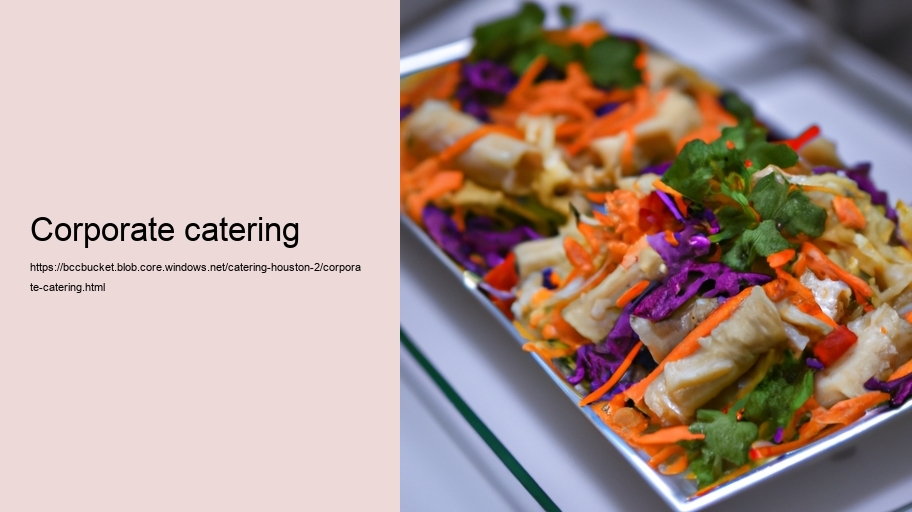Corporate catering is an essential service that plays a pivotal role in the business world, acting as a silent facilitator of meetings, events, and daily office life. It is the provision of food and beverages to employees, clients, and guests within a corporate environment by an external or internal caterer. This industry has evolved beyond mere sustenance, becoming a reflection of company culture, an expression of hospitality, and a tool for fostering teamwork and collaboration.
The roots of corporate catering can be traced back to organizational milestones—company-wide meetings, annual celebrations, or even casual Friday lunches—that warranted special food arrangements. As businesses grew and diversified their workforce, the demand for varied catering options increased. Today's corporate caterers must adapt to dietary restrictions, cultural preferences, and nutritional guidelines while maintaining high standards for taste and presentation.
One significant advantage of corporate catering is convenience. Organizing meals for numerous people can be logistically challenging; thus having professionals handle this responsibility saves time and energy that management can redirect towards core business activities. Moreover, catered meals eliminate the need for employees to step out for lunch or bring their own food from home; this reduces downtime and keeps everyone focused on work-related tasks.
Catering services also contribute significantly to employee satisfaction. Providing quality food shows staff that they are valued—a gesture that can enhance morale and increase productivity. For instance, well-crafted meal plans during intense periods such as end-of-quarter deadlines or project sprints can serve as motivational boosts that carry teams through demanding times.
In addition to nourishing employees day-to-day needs, corporate catering is instrumental during special events such as product launches or client negotiations where first impressions count. Here it becomes part of the broader strategic communication effort—underlining professionalism or reinforcing branding through themed menus reflective of the company’s identity or origin.
Client meetings often revolve around dining tables where deals are discussed over shared meals; hence culinary excellence paired with impeccable service speaks volumes about the host organization's attention to detail and commitment to quality experiences—an indirect yet potent form apart from verbal negotiation tactics.
Networking events facilitated by organizations frequently rely on buffet-style setups or cocktail receptions where finger foods encourage mingling among attendees. This less formal approach helps break down barriers between individuals who might otherwise remain within their professional silos—sparking conversations which could lead to collaborative ventures or partnerships.
Sustainability has also become an integral aspect of modern corporate catering practices with companies seeking providers who prioritize locally sourced ingredients reduce waste through compostable materials and implement ethical sourcing policies—all reflecting positive corporate social responsibility values.
The challenges faced by those in the sector range from logistical considerations like timely delivery in bustling cityscapes to staying abreast with ever-changing consumer trends including health-conscious menus plant-based options international cuisines—all delivered without compromising taste aesthetics ease consumption settings whether boardrooms open spaces picnic style outdoor gatherings alike.
In conclusion corporate catering represents more than just feeding people within workplace—it embodies nuanced blend artistry efficiency diplomacy impacting facets ranging employee wellness deal-making networking all aimed enhancing overall organizational ecosystem Whether simple coffee break elaborate gala dinner these services shape how businesses operate internally interact externally making invaluable asset any forward-thinking enterprise aiming thrive competitive landscape
